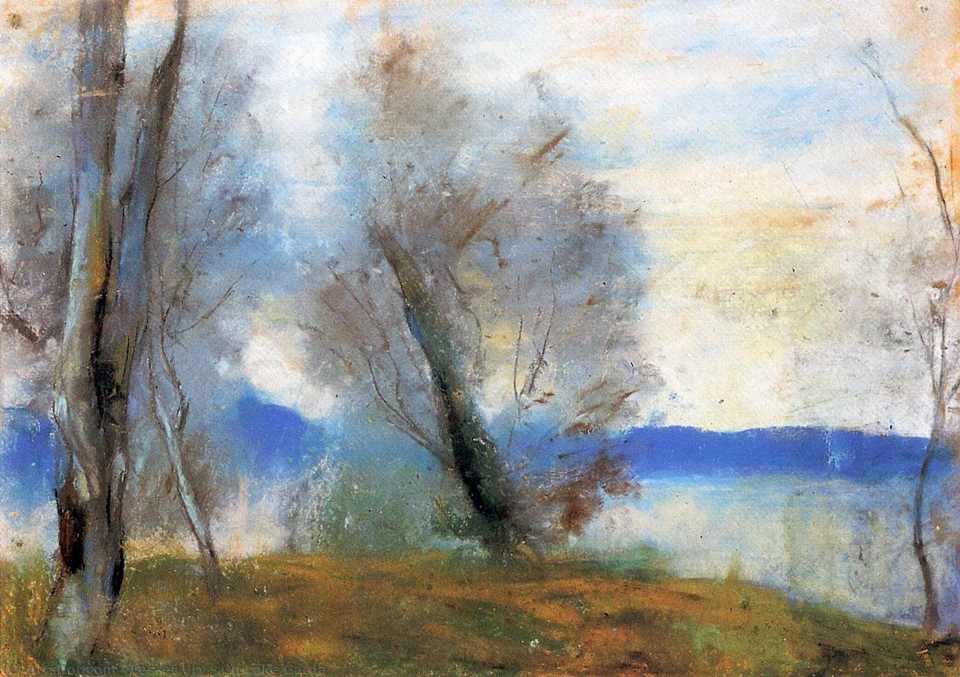
“Sul Lago di Garda,” pastel on paper, by Lesser Ury, 1897.
You sit at a window and listen to your father
crossing the dark grasses of the fields
toward you, a moon soaking through his shoes as he shuffles the wind
aside, the night in his hands like an empty bridle.
How long have we been this way, you ask him.
It must be ages, the wind answers. It must be the music of the wind
turning your fingers to glass, turning the furniture of childhood
to the colors of horses, turning them away.
Your father is still crossing the acres, a light on his tongue
like a small coin from an empire that has always been ruined.
Now the dark flocks are drifting through his shoulders
with an odor of lavender, an odor of gold. Now he has turned
as though to go, but only knelt down with the heavy oars
of October on his forearms, to begin the horrible rowing.
You sit in a chair in the room. The wind lies open
on your lap like the score of a life you did not measure.
You rise. You turn back to the room and repeat what you know:
The earth is not a home. The night is not an empty bridle
in the hands of a man crossing a field with a new moon
in his old wool. We abandon the dead. We abandon them.
Joseph Fasano earned a BA in philosophy from Harvard and an MFA from Columbia. His poems have appeared in The Yale Review, The Southern Review, Tin House, Boston Review, Passages North, and elsewhere. His most recent poetry collection is The Crossing, released in 2018. His first novel, The Dark Heart of Every Wild Thing, was published in 2020. He is a recipient of the Rattle Poetry Prize, the Cider Press Review Book Award, and other honors. He has taught at SUNY Purchase, Manhattanville College, and Columbia University.



